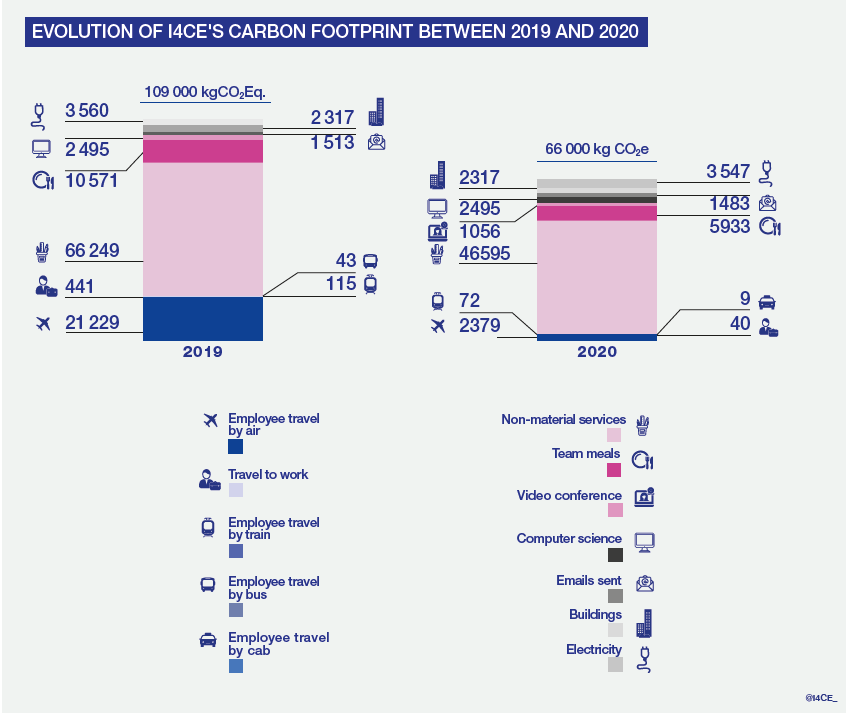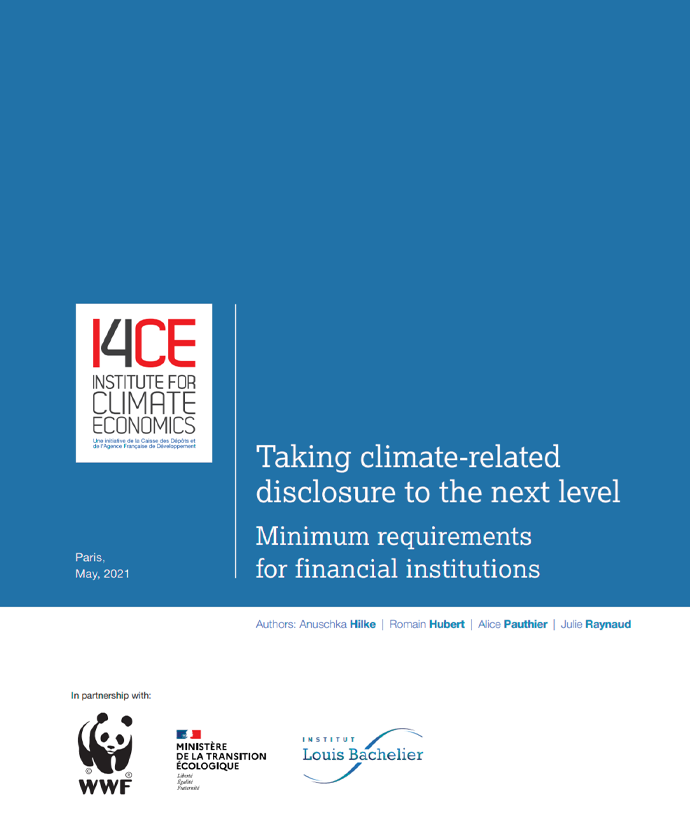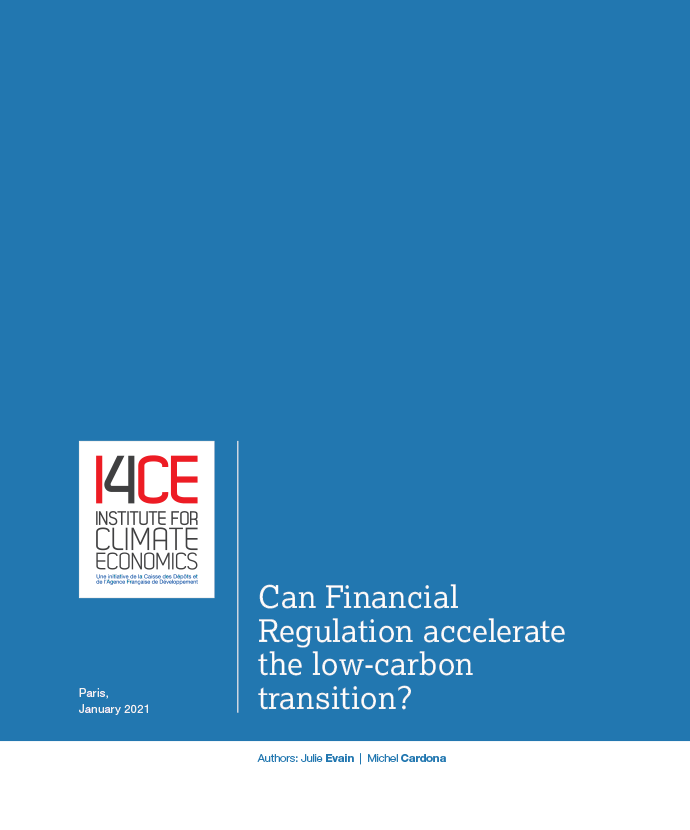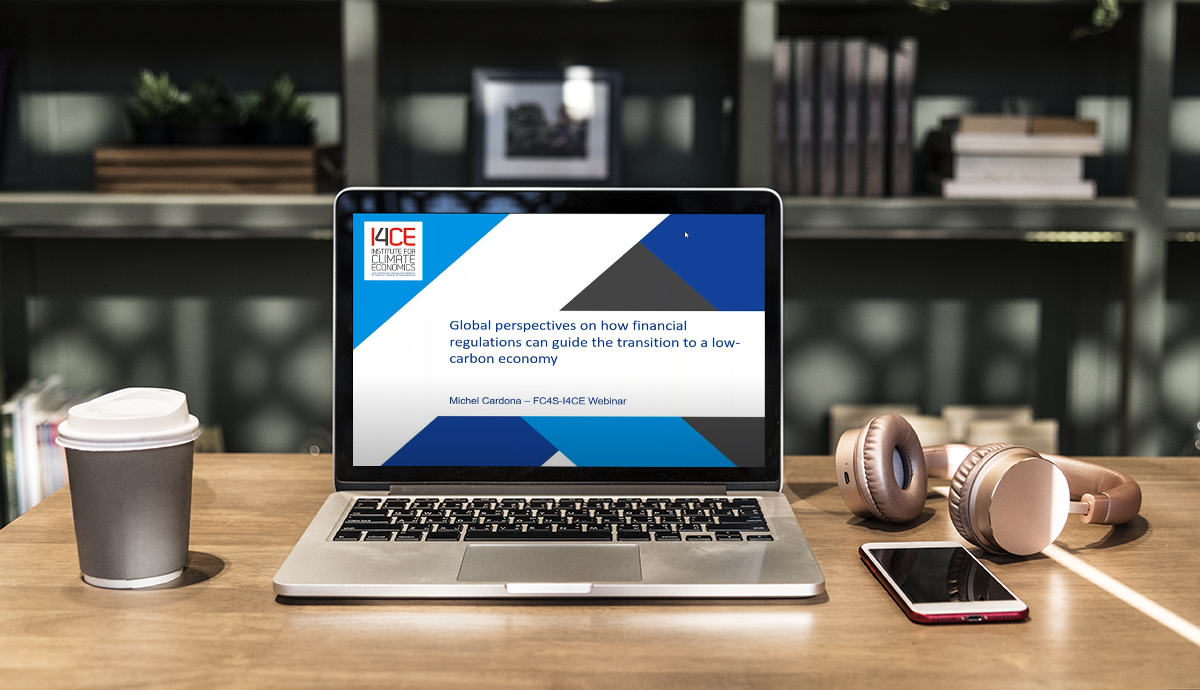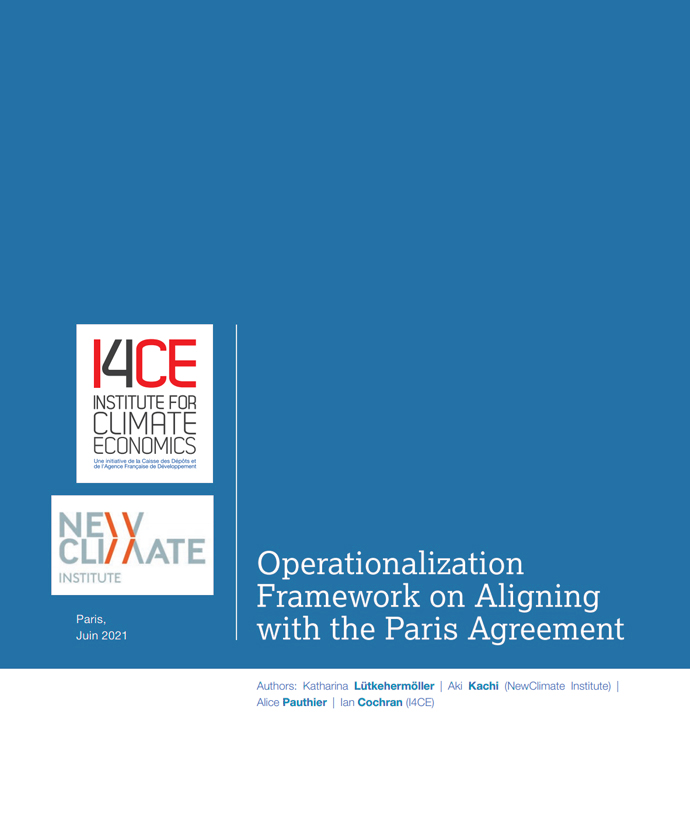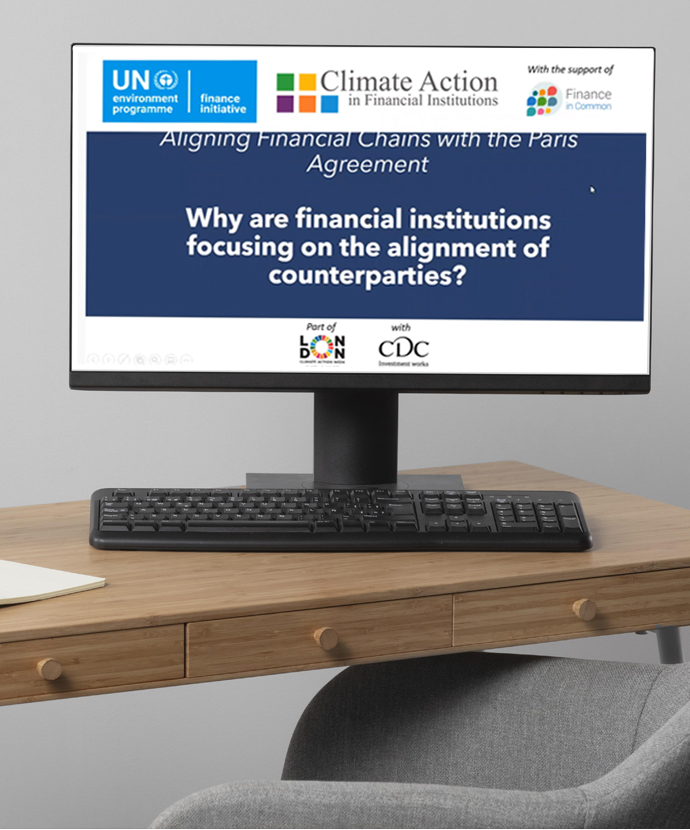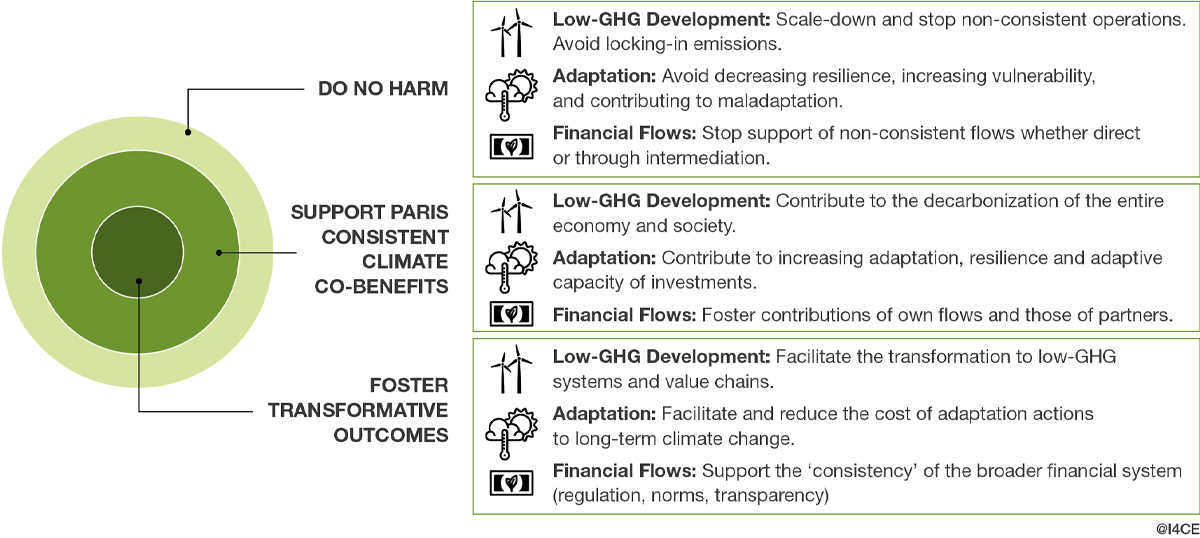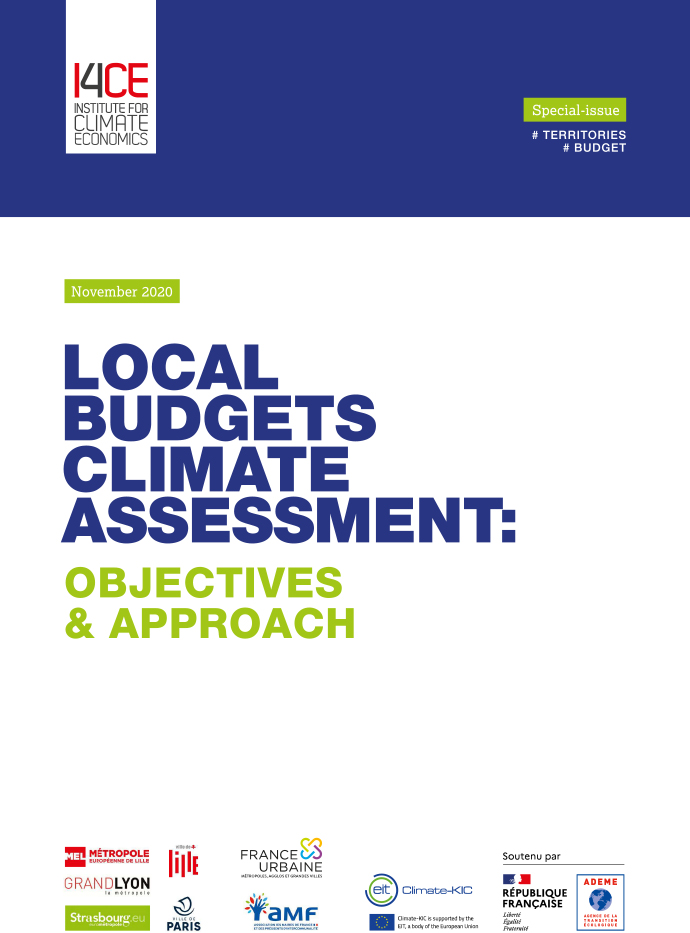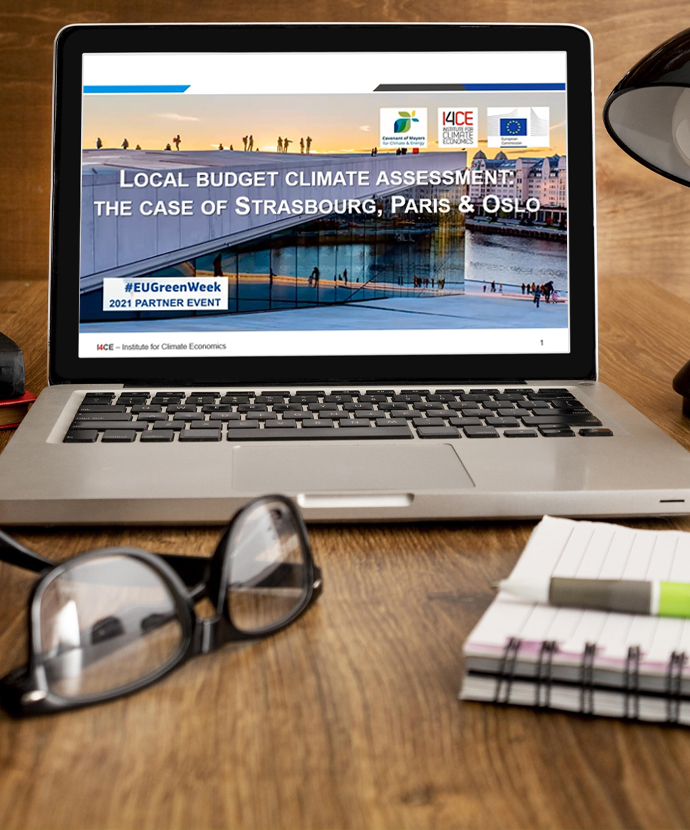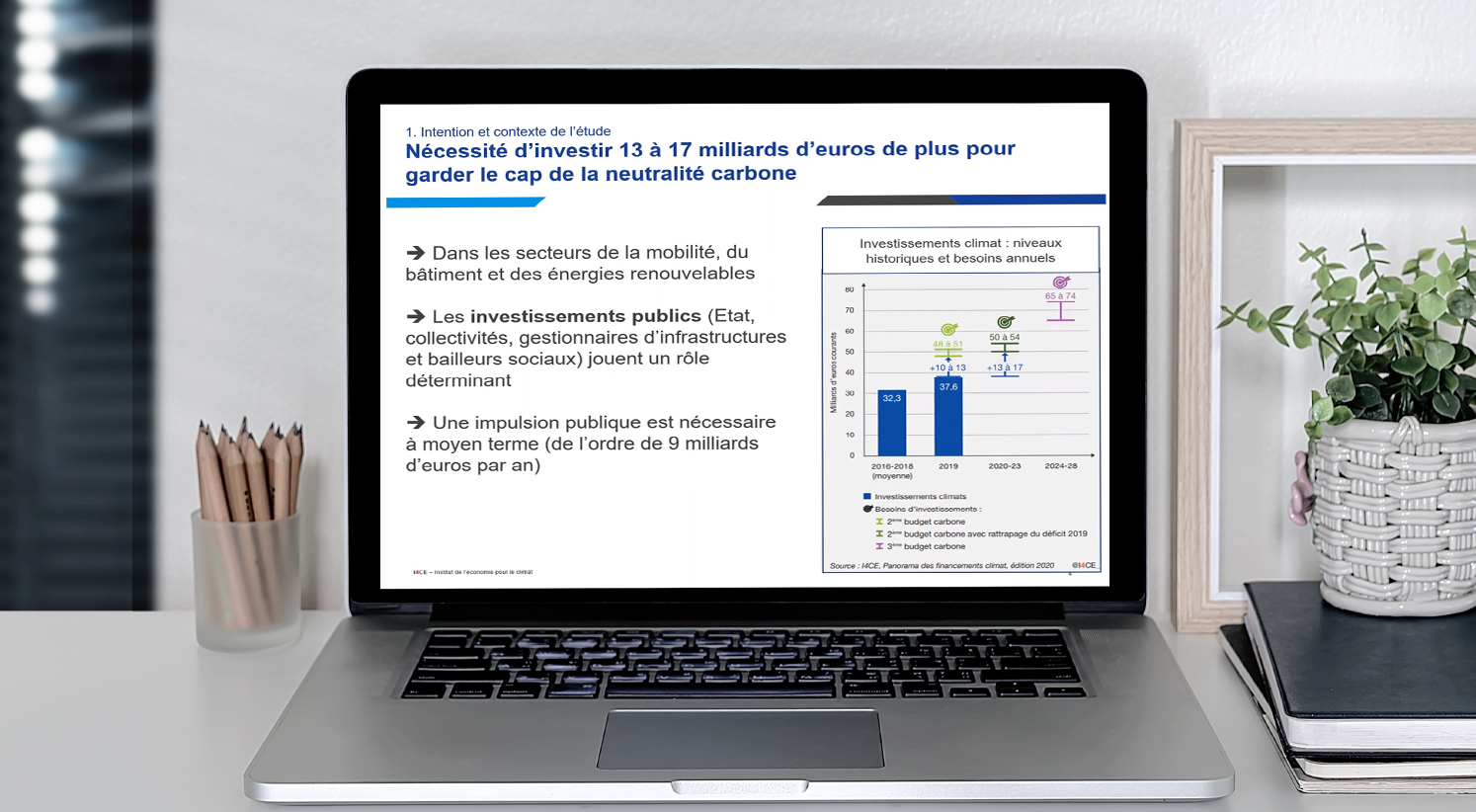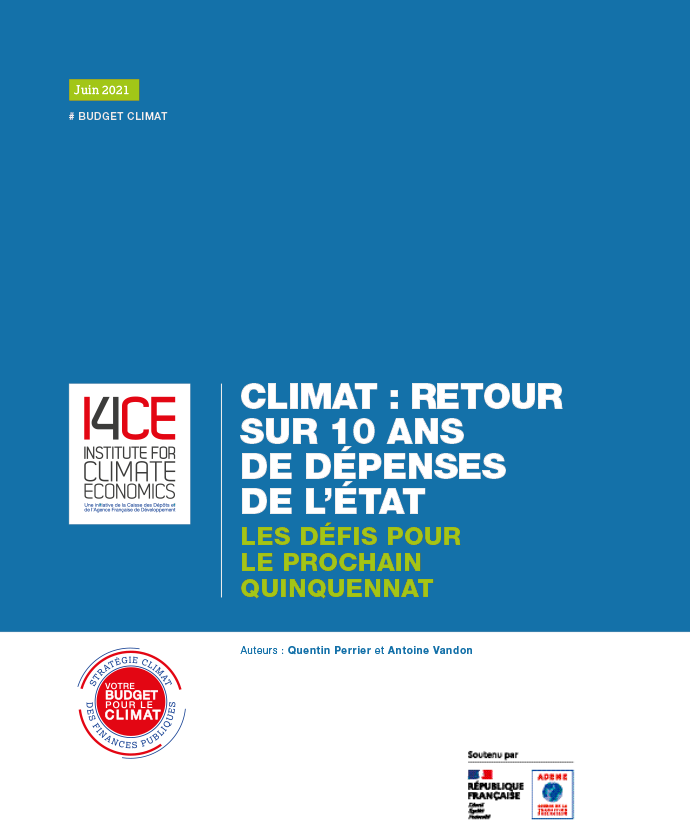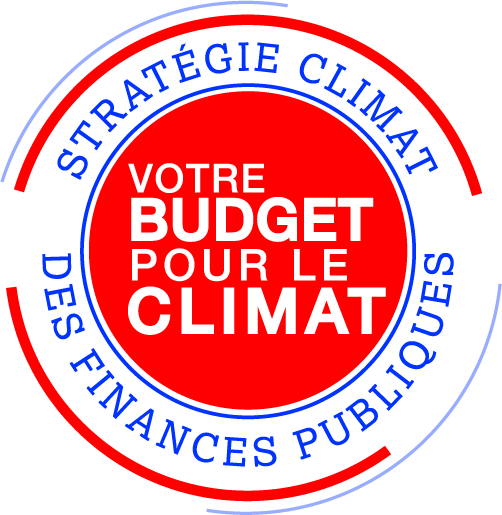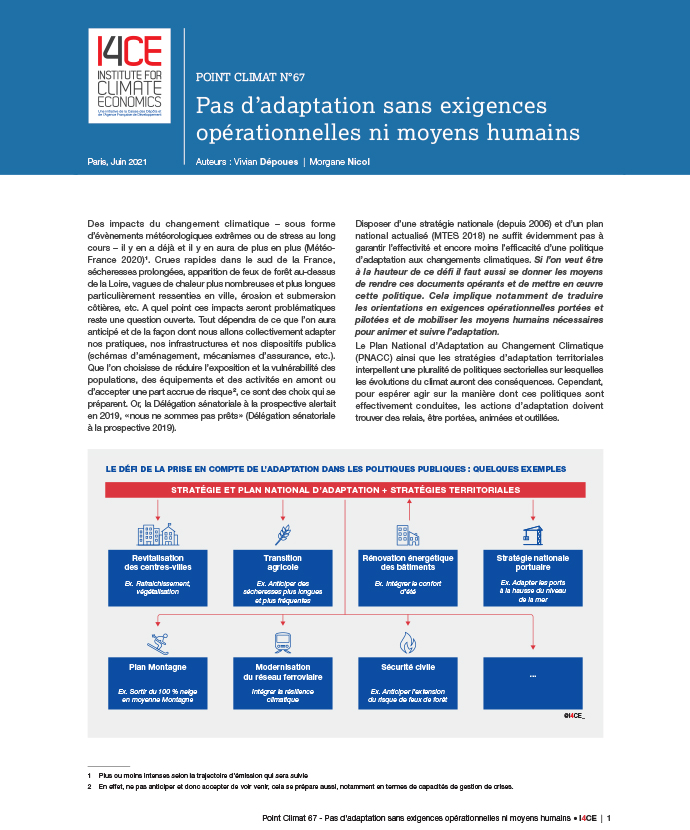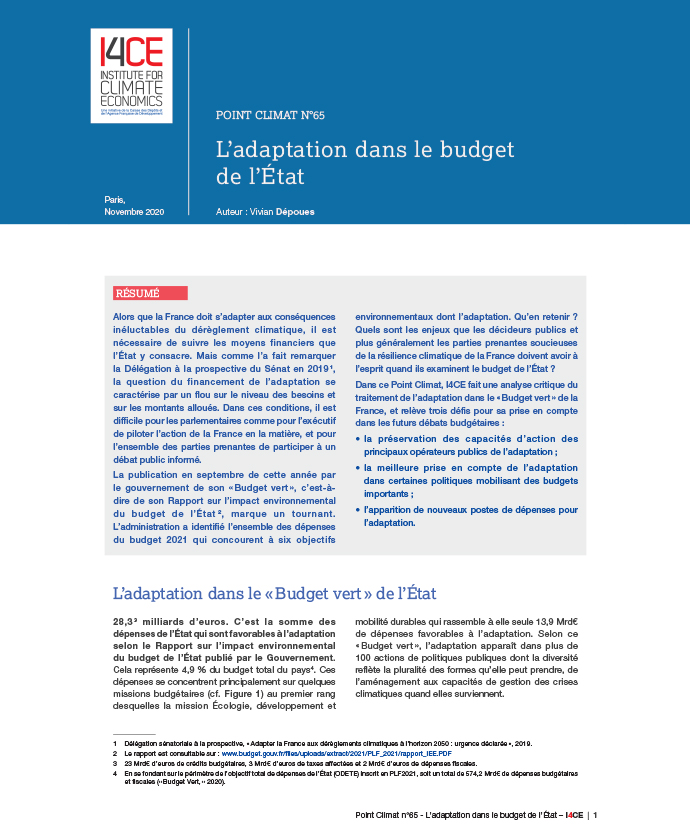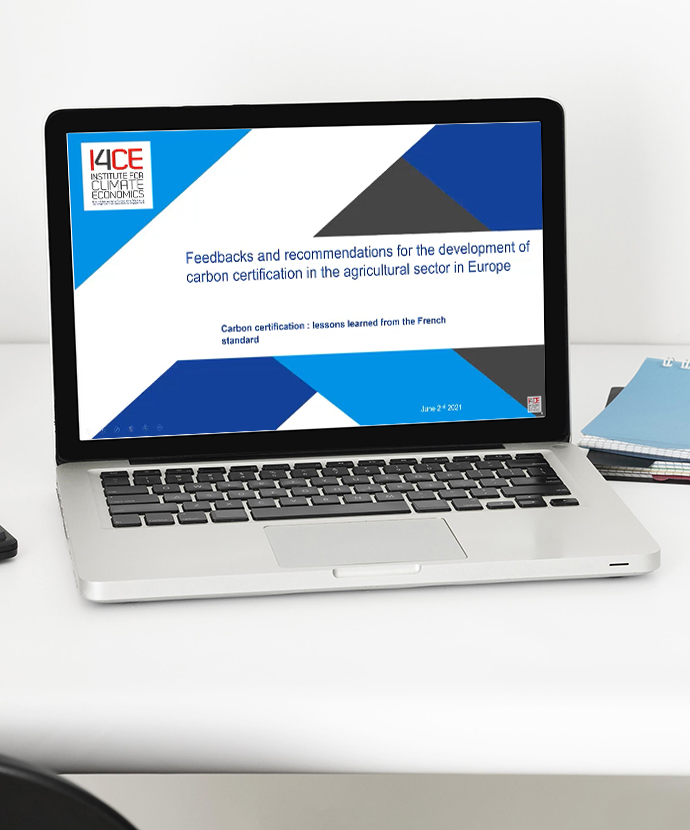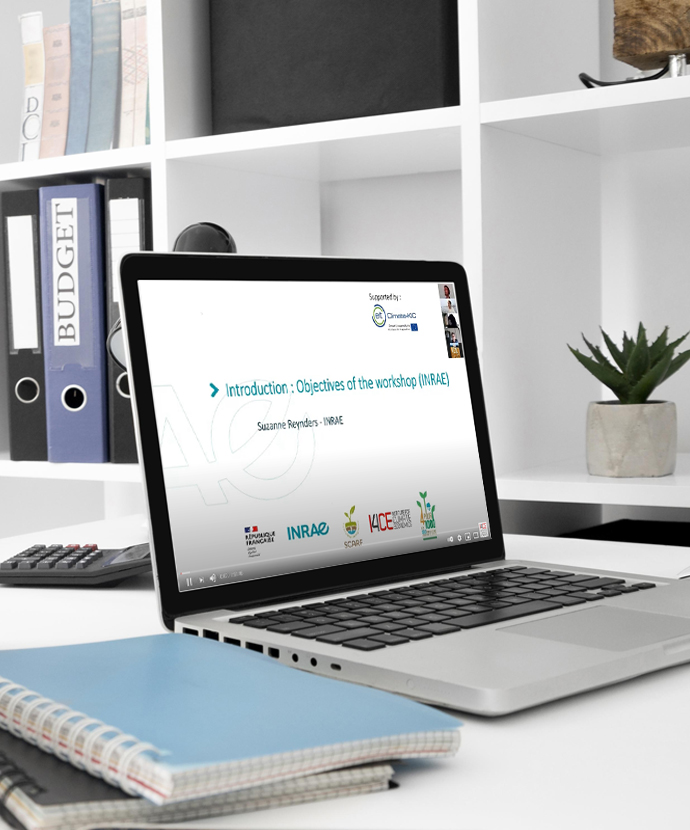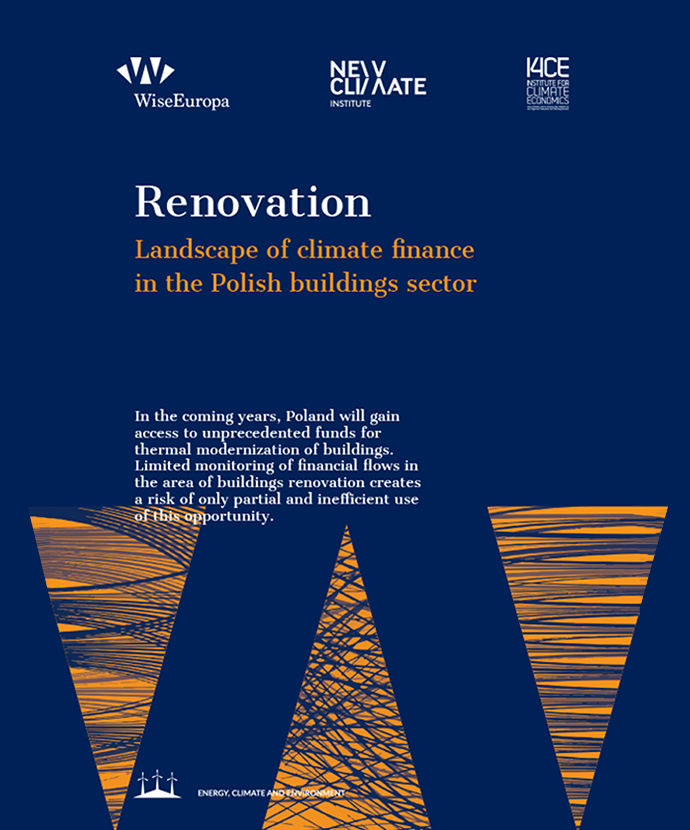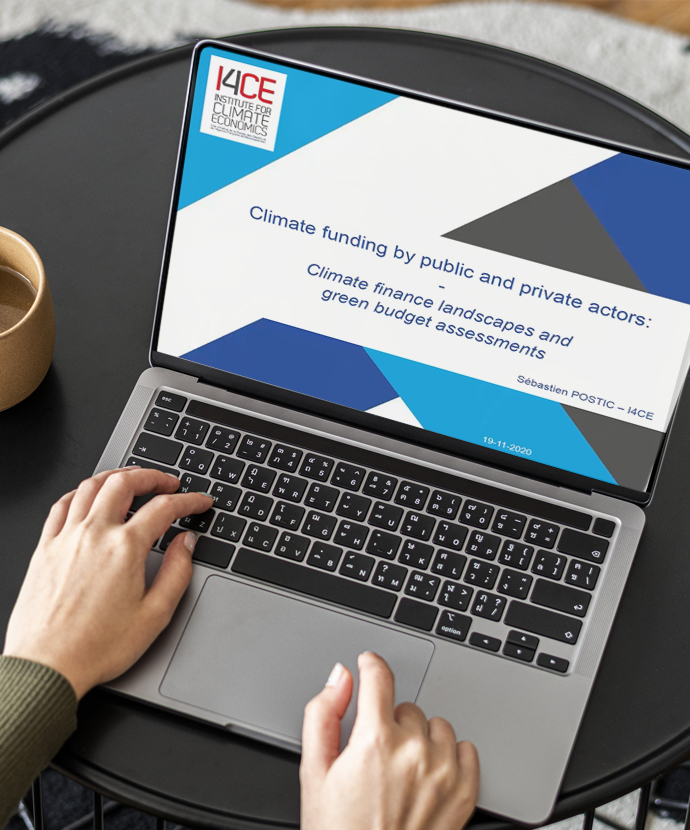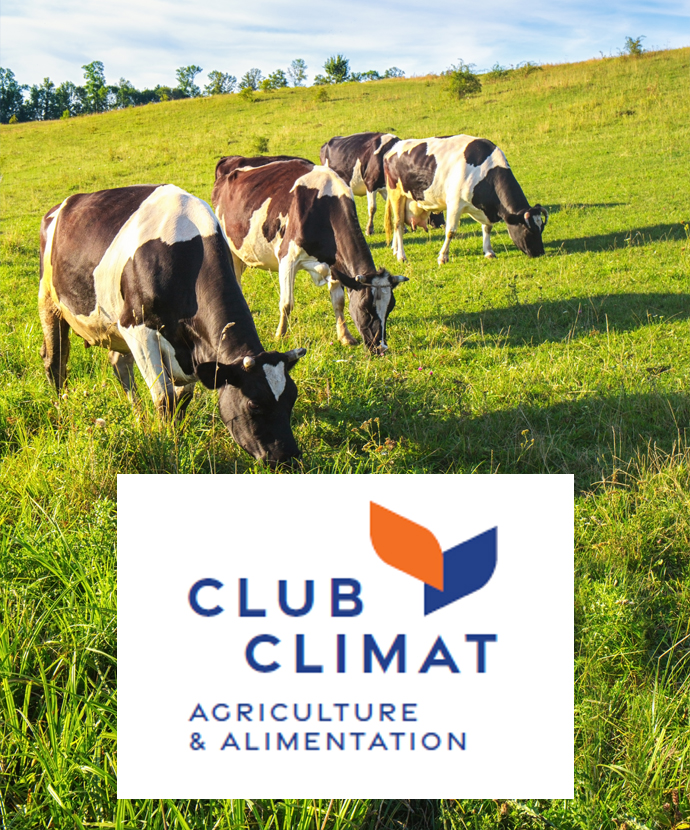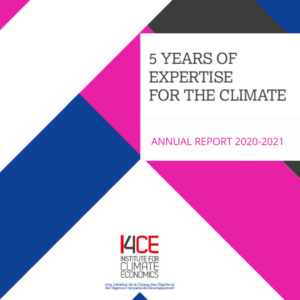
I4CE has just celebrated its fifth anniversary. During these five years, the Institute has developed its expertise relating to the economic stakes in the fight against climate change. This expertise, built over time, ensures I4CE is relevant in the public debate and it is able to be of value to the stakeholders. The main achievements of the last twelve months are no exception to the rule: they are often based on research projects and partnerships launched several years ago.
In this 2020-2021 activity report, you can find more than just our main achievements from the last year. For each of them, we also highlight the pioneering work that made them possible. This is our way of celebrating our five years of climate expertise and paying tribute to all those who have worked for the Institute.
FOREWORD
"Innovative methodologies and pioneering work"
The Institute was founded under the impetus of Pierre Ducret, who served as its president for five years and put it on track to become the Institute it is today. The I4CE team, led by Benoît Leguet, has developed innovative methodologies and pioneering work in many areas. These include the analysis of climate investments, the climate impact of public budgets, carbon certification and the contribution of the financial system in the fight against climate change. This work has proven to be very rewarding. Thanks to this work, the Institute has been able to contribute effectively to the debates on the French recovery plan, it leads a global network of 60 financial institutions and France has adopted a low-carbon label.
The challenge facing the Institute today is as great as ever. It will no longer be a matter of simply persuading or enlightening, but also of helping to frame the economic and political debates of tomorrow. This will require continued investment in research and pioneering work. I am pleased to have joined the Institute to help it stay on the cutting edge, to grow, to reinvent itself when necessary, to fulfill its mission and to have an ever greater impact.
Jean Pisani Ferry, Chair of I4CE
#I4CExpertise
![]()
The Institute for Climate Economics is a think tank with expertise in economics and finance whose mission is to support action against climate change. Through its applied research, the Institute contributes to the debate on climate-related policies. It also publicizes research to facilitate the analysis of financial institutions, businesses and territories and assists with the practical incorporation of climate issues into their activities.
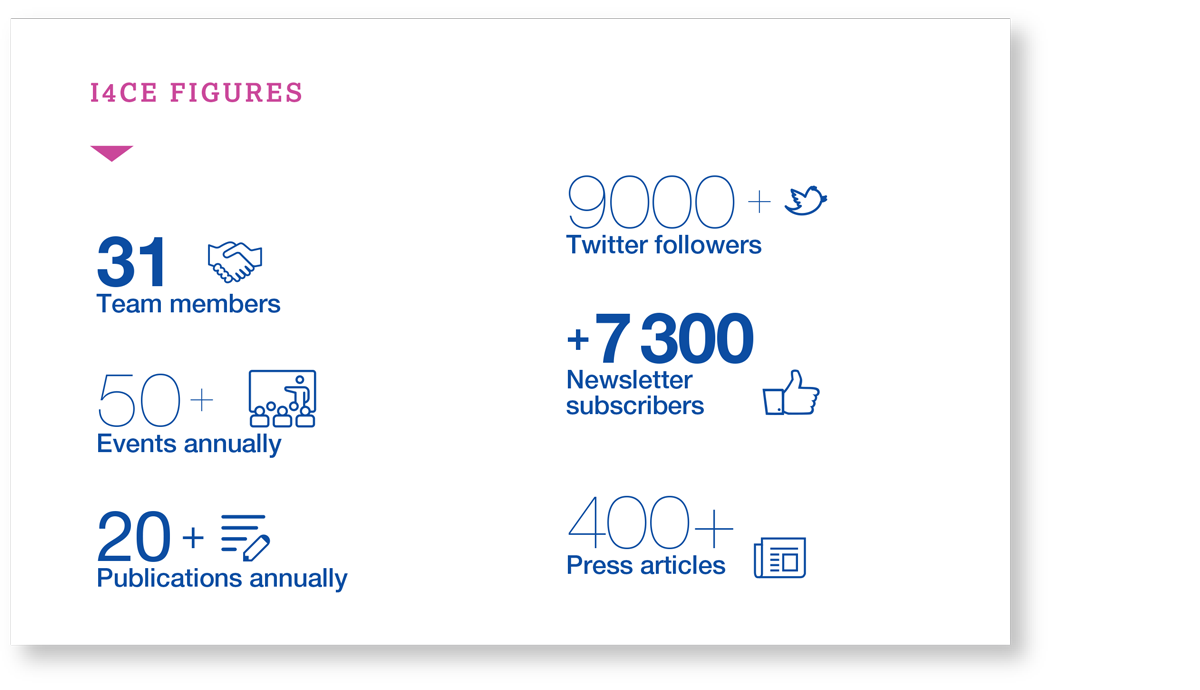
IMPACT
#Institute
CLIMATE DISCLOSURE
A new step is taken
To remedy this, I4CE proposed implementing a set of minimum quality criteria for the methodologies used by investors to measure their exposure to climate risks or their contribution to the objectives of the Paris Agreement. This is the approach that has been adopted by France. The new law on the matter was implemented by decree in May 2021. Will the EU, which is also committed to revising its climate–related disclosure obligations, do the same? To be continued.
#2MinOn
What is climate reporting for financial institutions? Where do we stand with their climate disclosure? Anuschka Hilke of I4CE presents the main findings of the study in two minutes.
#OpEd
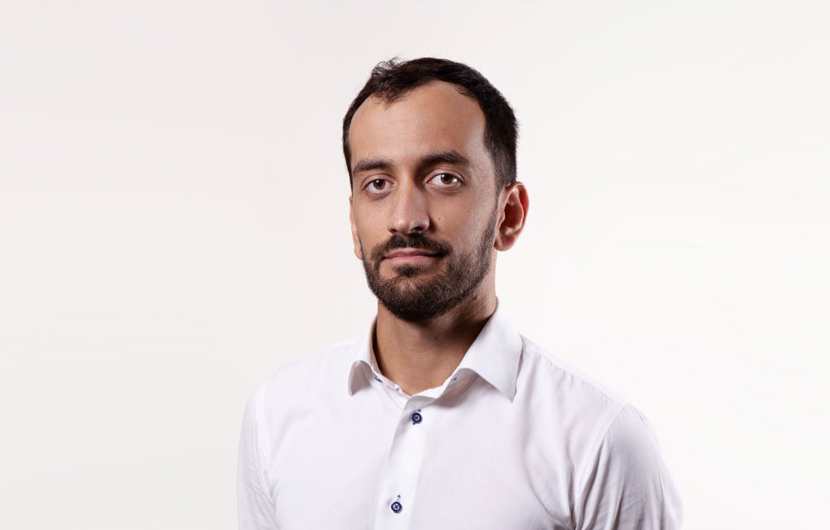
New climate-related disclosure requirements for French investors: achieving quality disclosure at last?
The government has recently modified the environmental, social and governance disclosure obligations for French investors via the publication of an implementing decree which specifies regulator expectations. Romain Hubert of the Institute for Climate Economics explains why this decree was to be expected and necessary for climate reporting. While he welcomes the approach chosen which aims to finally improve the quality of reporting, he regrets that the decree does not encourage investors to clarify their role in the fight against climate change.
FINANCIAL REGULATION
Climate gets out of its niche
The Commission has listened to the proposals of many experts on this subject and in particular those published by I4CE in early 2021: training of financial advisors, clarification of fiduciary duty, transparency of non-financial rating agencies, etc. These are proposals that seek to ensure financial stability and the proper functioning of the markets as well as to accelerate the financing of the low carbon transition.
#2minOn
In this two-minute video, Julie Evain from I4CE, explains the obstacles and tools identified for the financing of the low-carbon transition.
ALIGNMENT
Financial institutions now have their toolbox
To help them concretely align with the objectives of the Paris Agreement, I4CE has teamed with NewClimate Institute to launch a Toolkit. Initially developed for the International Development Finance Club and its 26 development banks around the world, it is now available free of charge to all financial institutions. In the run-up to COP26 in Glasgow, many financial institutions are developing new strategies and action plans, so the toolkit launch has come at the right time.
#Webinar
Financial institutions who committed to be “Paris aligned” have identified a need to focus on counterparties. Why? And what are the initial steps they are taking to do so? Listen to the recording of the first webinar of the Financial Institutions’ Group on the Alignment of Financial Chains.
#OpEd
The Next Step for Financial Institutions: Aligning the entire Financial Chain

A core goal of the Paris Agreement is “make finance flows consistent with a pathway towards low greenhouse gas emissions and climate-resilient development.” Since 2015, financial institutions of all types – from development banks to asset owners and pension funds – have committed to making their portfolios ‘consistent’ with the Paris Agreement. In practice, Financial Institutions are at times approaching alignment from different points of entry: either focusing on one hand “what” or on the other hand “who” is financed. In the run-up to COP26 the Climate Action in Financial Institutions Initiative and UNEP FI have convened a group of Financial Institutions to take a step further to look at the alignment of the entire financial chain.
CLIMATE ASSESSMENT OF BUDGETS
Local authorities can also do it
Following the State, local authorities are now able to evaluate their budgets under the spectrum of climate. I4CE has published the first methodology for evaluating local budgets. This has been developed with many partners and tested by several large cities and metropolises. This methodology is available free of charge to all local authorities, to help them question their spending and align it with their climate ambitions.
#I4CE_Report
I4CE and its partners have embarked on the co-construction of a common and shared methodology to evaluate a local budget under the prism of climate issues. This document aims at briefly presenting benefits for a local authority to launch a process of assessing its budget under the prism of the climate, and the approach to be set up.
STATE-REGION PLAN CONTRACTS
Let's not forget the climate
This is why I4CE wished to draw attention to these contracts, which are too often overlooked. Its various analyses have highlighted their decisive character for the climate and the weaknesses of the CPER projects currently under negotiation, and have enabled it to question the State and the Regions. Although the new CPERs will see some improvements compared to the previous ones, there are still black spots, starting with the lack of consideration for the challenge of adaptation.
RECOVERY PLAN
Preparing for what comes next
The billions allocated to the climate in the stimulus plan will expire in 2022, but the need for public funding will not have diminished by then; in fact, it is likely to increase significantly. Therefore, I4CE has continued to publish analyses to help today's public decision makers anticipate the post-2022 period and future presidential candidates to prepare their climate budget.
#I4CE_Project
What will your budget for the climate be? Throughout 2021 and until the presidential election, I4CE will publish a series of studies, called ‘Your Budget for the Climate’, to provide insights and data to (future) candidates. All the publications from the collection can be found on this page.
ADAPTATION
It is time to clarify the needs
This needs to be clarified, which is what I4CE has started to do over the last 12 months. This is pioneering and long-term work that the Institute will continue so that the State, local authorities and all competent public stakeholders have the means - and in particular the human means - essential to face extreme climate events and take up the challenge of adaptation.
LOW-CARBON STANDARD
Entering adolescence
I4CE supports the development of this standard and although still in its infancy, it has progressed significantly in the last 12 months. More than 100 forestry projects have been labelled, as well as a collective project involving 300 farmers. Another 600 farmers should soon follow. These successes go hand in hand with the emergence of critics who allow the label to continue to evolve and improve.
FINANCING THE TRANSITION
I4CE exports its methods internationally
These tools have proven their worth in France, particularly in the development of the French stimulus plan, and this is why I4CE participates in their international dissemination, helps actors in other countries to adapt them to their national context and learns from their experiences. The Institute has thus initiated several new collaborations on the "Green Budget" during the last twelve months, in Costa Rica and with nearly twenty member states of the European Union. And I4CE is proud to announce that Morocco and Poland now have their own Climate Finance Panorama!
I4CE CLUBS
A year of anniversaries
I4CE has just celebrated the 5th anniversary of the Climate Action in Financial Institutions Initiative, for which it provides the scientific secretariat. This initiative now brings together more than 60 public and private financial institutions that want to learn from each other. Despite the global health crisis, meetings over the past 12 months have been more frequent than ever.
The Climate Agriculture and Carbon Forestry Clubs have also continued to meet, mostly by videoconference. Both organisations celebrated anniversaries as well, 8 years for the first and 10 years for the second. During this occasion, a new registration system was introduced to allow smaller players - whether companies, scientific organizations or NGOs - to participate in the clubs and enhance their skills and understanding of regulatory changes and their impacts on the food and forestry sectors.
#Initiative
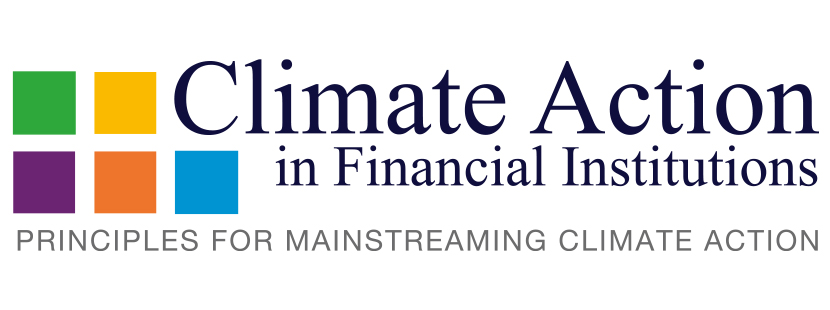
The Climate Action in Financial Institutions Initiative supports public and private financial institutions to better reflect and manage climate-related risks and opportunities, ensure that climate considerations are disseminated within and across their organizations and align financial flows with the goals of the Paris Agreement. This community of peers provides exposure to best practice and direct access to professionals from across the financial community through a program of climate-finance related activities and events – enabling professionals to save time, be more efficient and support the development of common approaches. I4CE is the secretariat of the Initiative.
BUDGET
A valuable core funding
What is this money used for? Primarily, these funds are used to employ the experts that work for I4CE and the support staff that assist them on a daily basis: administration, communication and management. Unlike other comparable institutes or think tanks, I4CE has chosen to produce its studies with experts who are employed directly by the Institute and are developing their skills within the organisation. This approach eliminates the need to outsource experts who are volunteers, paid on a per-assignment basis or having working groups that bring together experts from other organisations.
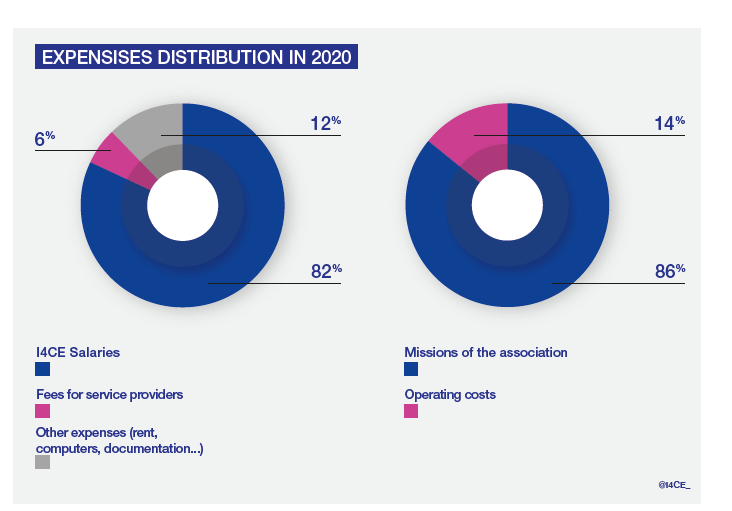
61% of I4CE’s funding comes from core-funders, who support I4CE’s work as a whole rather than individual projects. Initially, the core-funders and founders of I4CE were the Caisse des Dépôts et Consignations and the Agence Française de Développement. In 2016, I4CE welcomed the addition of the Caisse de Dépôt et de Gestion du Maroc and more recently they have been joined by GRDF and the asset manager Meeschaert.
This core funding is extremely valuable. It allows the Institute to launch new and innovative projects and gives I4CE the freedom to choose its research projects. It also allows the Institute adequate time to promote its work effectively.
In addition to this core funding, I4CE benefits from project-based funding, which is targeted on specific projects. Many of the project-based funders have been collaborating with I4CE for many years. As a result, the institute gains visibility on its funding and is able to build a relationship of trust with its funders. However, project funders do not define the I4CE projects. The Institute conceives projects of general interest and then approaches its funders for support. I4CE rarely responds to tenders and if they do, it is only when the studies commissioned are aligned with the Institute’s work projects.
The majority of the project-based funding comes from public institutions: ADEME, Ministry of Ecology, local authorities, European research programs, French National Research Agency. The rest comes from private institutions: philanthropic foundations (European Climate Foundation, Carasso Foundation) and private companies, mainly in the form of subscriptions to I4CE’s Agriculture and Forestry Clubs.
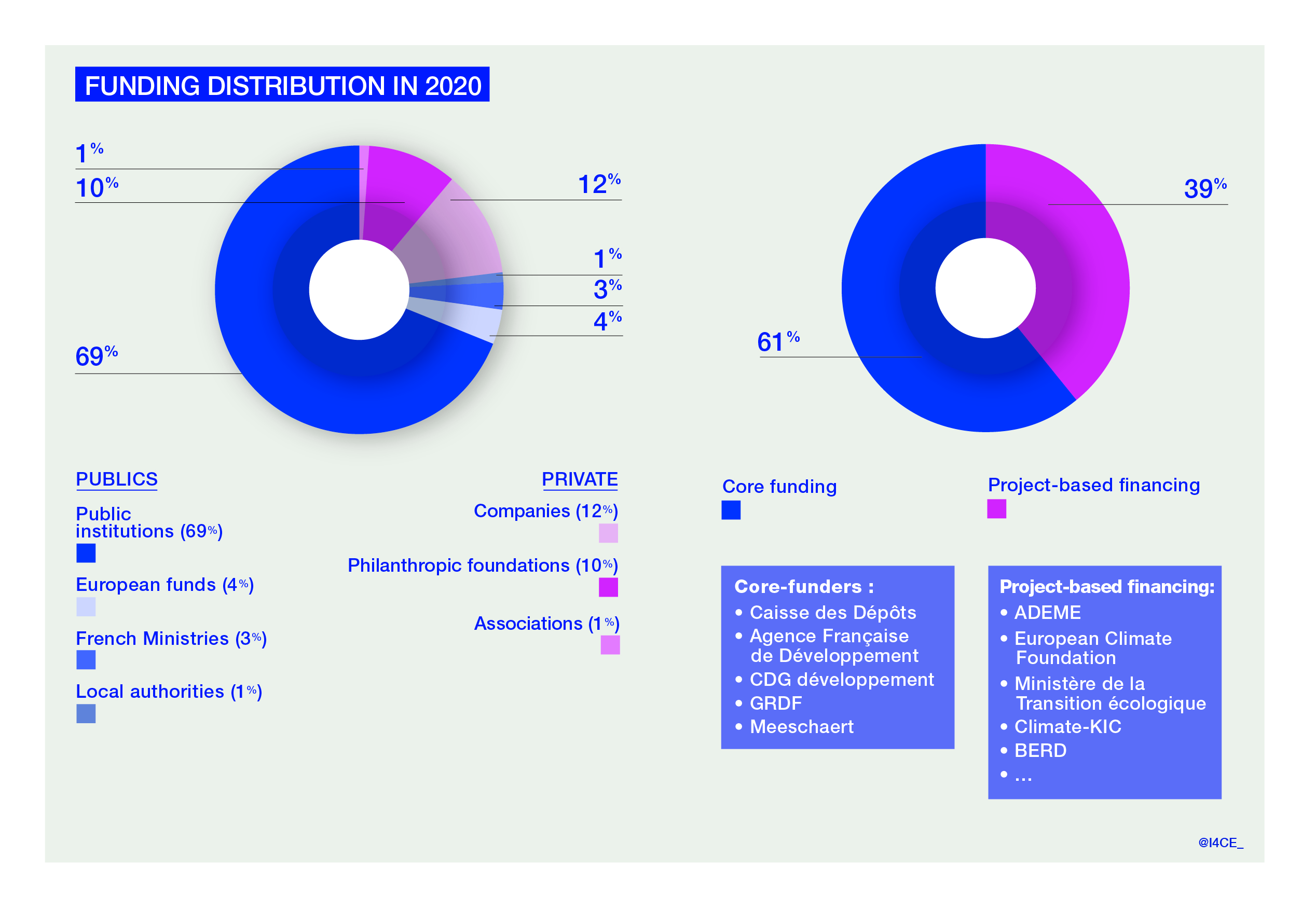
CARBON FOOTPRINT
Our carbon footprint and our climate commitments
The last carbon assessment carried out by I4CE shows that the Institute emitted 66 tCO2e in 2020.
This assessment covers all areas of the Institute from manufacturing through to communications, the scope of this assessment includes the use of equipment, building and staff resourcing as well as travel of its employees (see illustration below on the scope of analysis). In relation to the number of employees, I4CE emits 2.6 tCO2e/year/FTE . In comparison, the average annual carbon footprint of a French person is 11.5 tCO2e.
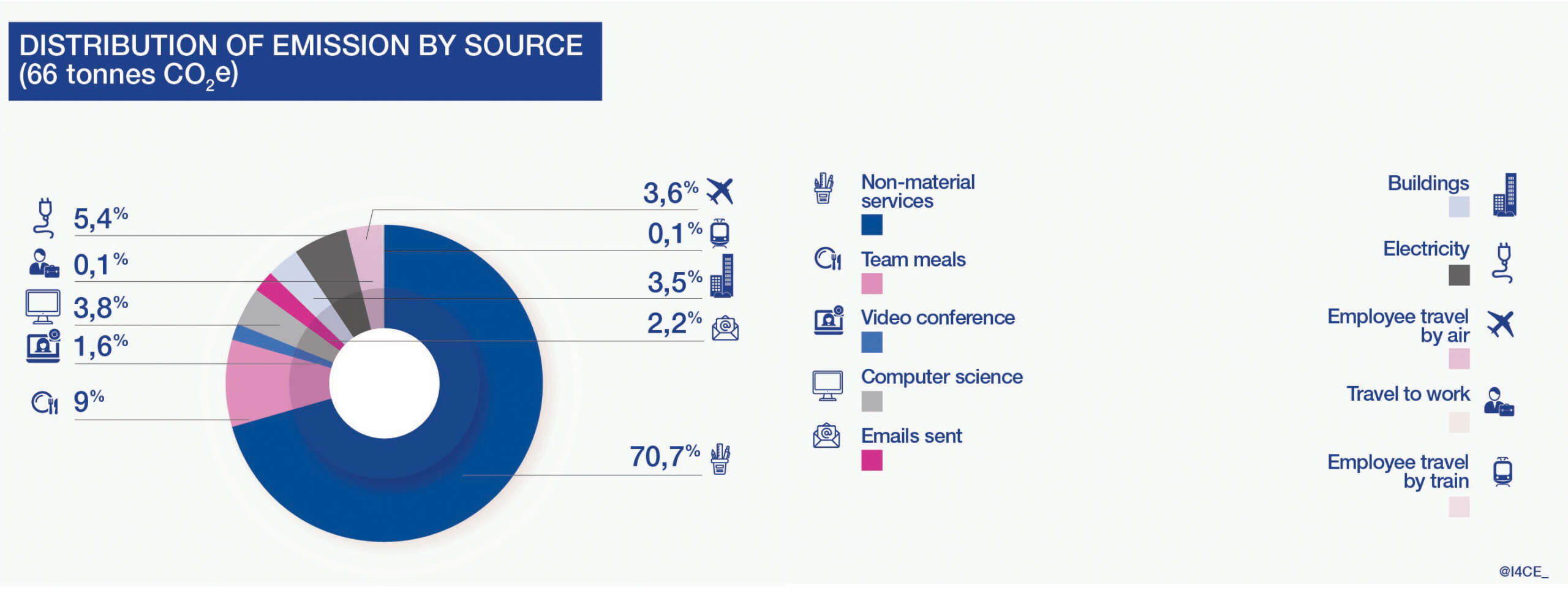
The main emission items
In 2020, I4CE‘s highest emissions, by far, came from the services purchased by the Institute (70%). This category covers both the use of a service provider (graphic designer or lawyer, for example) and the various purchases necessary for day-to-day operations (paper, press subscriptions, etc.). The carbon emissions of this item are estimated using several monetary ratios recommended by ADEME, which converts the euros spent into CO2e in order to estimate the emissions induced by these services.
In second place, team meals emit the most emissions (9%).
Team meals were estimated from an internal survey on the composition of meals (meat, vegetarian, vegan, etc.). The results show that more than 2/3 of the team’s meals are flexitarian, with a carbon impact estimated to be 30% lower than what is considered a ‘classic’ meal according to the ADEME carbon base.
As for the digital sector, this item as a whole (videoconferencing, emails, equipment) accounts for 7.1% of the balance sheet, a significant part of the Institute’s emissions.
The dynamics
Unsurprisingly, the 2020 report is much lower than the 2019 report (43 tCO2e less, for the same number of FTEs). This decrease can be explained primarily by the reduction in air travels numbers due to the global pandemic. Another significant explanation is that I4CE organised almost no face-to-face events in 2020, so emissions related to this type of service have dropped. This decrease is not compensated by the increase in emissions from the digital division.
#OurCommitments
Since the launch of the Institute’s first reported carbon footprint, an internal working group has been set up to devise actions to reduce I4CE‘s emissions and to regularly assess the progress made. Here are the actions on undertaken by the Institute to reduce the carbon footprint:
1. Transport: For business trips and home-work trips
2. Energy: Electricity
3. Suppliers and purchases – I4CE favors the suppliers with environmental and social clauses as much as possible.
4. Contribution to the national climate effort.
